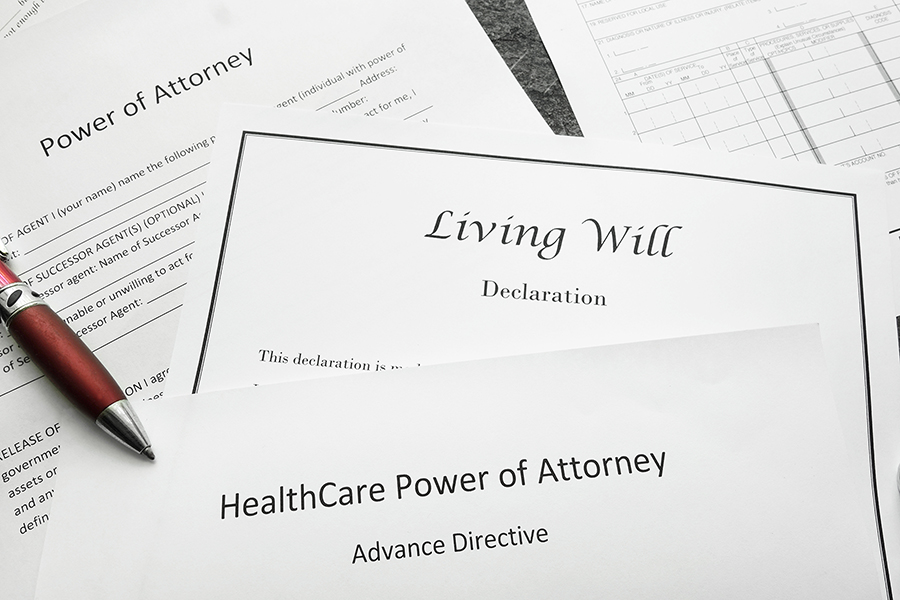Top 10 Reasons to Revisit Your Estate Plan
By: Rafael Ruano, Esq.
Did you know that you should consider dusting off and revisiting your estate plan every 3 to 5 years at a minimum? Yes, we encourage all our clients to periodically review their estate plans to ensure alignment with current laws, family and financial status and more.
Here are 10 of the many reasons why:
- Making Sure Your Trust is Properly Funded.
This is the most important step after you have created your estate plan. Failure to properly fund your trust, will result in a probate matters for beneficiaries and defeat one of the main reasons to create an estate plan in the first place.
So, what does it mean to “fund your trust?” Essentially, it just means that you have placed all your assets in the name or the trust, designated the trust as a beneficiary or you have designated other beneficiaries.
An example of the some of the assets you should check are: Your home, bank accounts (checking and savings), investment accounts (stocks, mutual funds, certificates of deposit, annuities, etc.), retirement accounts (IRAs, 401(k)s, etc.) and any business interests.
- Have Your Assets and Liabilities Changed?
Over time your assets and liabilities (or debts) change. If you bought a new house or acquired new bank accounts or investment accounts, you should make sure you have properly titled your home in your trust or designated beneficiaries on all your accounts. If you lent someone money, you may want to be sure your estate will be repaid upon your death. In addition, your debts or liabilities may have changed, which may trigger different planning for distribution of your assets upon your death. If you acquired many new assets or your assets have increased significantly in value, you may want to consider some tax concerns related to your estate.
- Make Specific Gifts.
You may make specific gifts in your estate plan. You may distribute a certain item or amount of money to someone specific. One of the most contentious matters in trust and estate litigation is the ownership of various tangible personal property items. Some of the important items that should be designated to certain people include weddings rings, family heirlooms, antique furniture, other jewelry, valuable paintings, or other antique items.
However, the most overlooked items are those of sentimental value. Some items may have little to no monetary value but are used every holiday or weekly family dinners or family vacations. These items should be designated to someone specific to avoid arguments over the item after your death.
- Update Changes in Beneficiaries and Provisions for Grandchildren.
Sometimes relationships change and you may want to revisit who you have listed in your trust or will as a beneficiary of your estate. On the other hand, your beneficiaries may be the same people, but you may want to change how the trustee distributes your assets to each beneficiary.
You can customize how each beneficiary receives his or her share of your trust. You may direct your trustee to distribute the beneficiary’s share outright upon your death or in a sub-trust to be distributed to the beneficiary in age stages. You may also provide provisions for your trustee to have the discretion to make distributions to your beneficiaries for education, purchase of a home, or for their health costs.
If your beneficiary predeceases you, that beneficiary’s share may go to his or her children (like your grandchildren). You may also provide provisions for how and when your grandchildren get their share distributed to them.
- Update Beneficiary Designations on Retirement Accounts and Investment Accounts.
If you have a retirement account or any other investment accounts held through your employer or a financial advisor, you should make sure you have properly identified beneficiaries on those accounts to avoid possible probate proceedings after your death. A change to your beneficiaries may be triggered by a marriage, divorce, children reaching adulthood or a change in relationships in general. Often times your employer or financial advisor has specific forms you will need to fill out to designate beneficiaries on those accounts and we can help you fill these forms out.
- Change in Trustees – Are Our Children Adults Enough Yet?
Often times when people create their trusts, their children are minors. However, once your children reach adulthood, you may want to designate your children to handle your financial or health care decisions for you. On the other hand, if you do not have children, you may still want to change your trustees. Deciding when to make these changes is not “one size fits all” and needs to take into account your family’s unique circumstances.
- Did You Refinance Your Home? You Should Check the Title of Your Home.
If you refinanced your home, many mortgage companies will take the home out of the name of your trust in order to complete the refinance process. However, once your refinance is complete, many people forget to put their home back into trust. The failure to put your home in your trust may trigger a probate matter upon your death. We can help you find the latest vesting deed to your home and make sure your home is properly titled in the name of the trust.
- Your Advance Health Care Directive Should Include a HIPAA Release.
Heath Insurance Portability and Accountability Act (“HIPAA”) provides protection for your confidential health information. (42 U.S.C. § 1320d, 45 C.F.R. Parts 160 and 164). The purpose of HIPAA is to reduce health care fraud and abuse and provides ability to transfer and continue health insurance coverage for employees and their families in between jobs. However, HIPAA may create issues for your Advance Health Care Directive agent to be able to make the best health care decisions because your agent may not have access to your health care information. HIPAA may also create issues for your Advance Health Care Directive agent to have access to your health insurance coverage and invoices that may need to be paid by your Durable Power of Attorney agent, who has control over your finances. We include a HIPAA release in our Advance Health Care Directives.
- Make Sure Your Parents’ Estate Plan is Also Updated.
Even if your estate plan is properly funded and up to date, your parents’ estate plan may need to be revisited for the same reasons. You may be designated to handle someone else’s estate, financial or health decisions when that person cannot make decisions for him or herself. You should make sure that person’s estate plan it also up to date so you will be less likely to run into headaches while managing their affairs.
- General Review of Trust Language and Provisions Make Sure All Your Wishes are Protected.
If you already have an estate plan, you may want us to review your estate plan and make sure you have addressed all of the concerns mentioned here. Over time the laws change, and your estate plan may need to be updated to include new provisions or address new concerns or address new tax concerns.
Contact Goyette & Associates at (888) 993-1600 or frontdesk@goyette-assoc.com for your free consultation.

